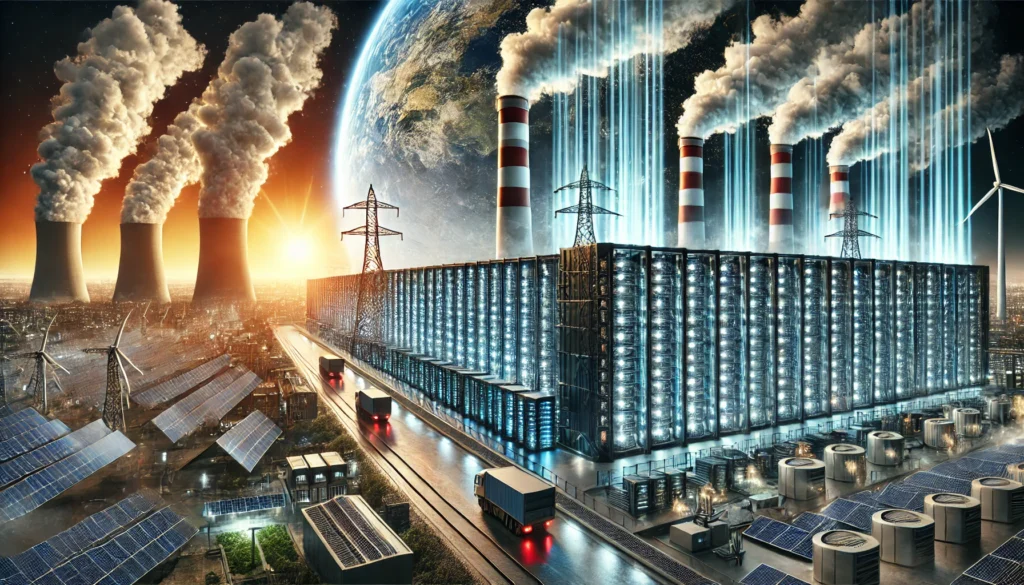Artificial intelligence (AI) has become the talk of the tech world. Giants like Microsoft, Google, Amazon, and Meta are investing heavily in AI, fueling a surge in the demand for computing power. While AI offers incredible benefits, the massive energy requirements of the data centers powering it raise pressing environmental and economic concerns.
Data Centers: Energy Guzzlers
Data centers consume staggering amounts of electricity, and this demand is growing exponentially. Utilities, unprepared for this surge, are keeping outdated coal-fired power plants operational to meet energy needs. This decision increases greenhouse gas emissions and negatively impacts human health. Moreover, the 24/7 power demands of data centers strain renewable energy sources, forcing utilities to rely on gas and nuclear power, both of which have significant environmental drawbacks.
Heat and Grid Reliability Challenges
The enormous heat generated by data centers is often wasted, further impacting the environment. Additionally, these facilities can disrupt grid reliability. They can suddenly shift to backup power during grid fluctuations, destabilizing the electricity supply. High-energy operations, like cryptocurrency mining, exacerbate this issue by rapidly scaling power usage, leading to grid imbalances.
Compromised Clean Energy Goals
Big tech companies claim to support renewable energy, but their actions suggest otherwise. Utilities are constructing methane-fired power plants to power new data centers, undermining clean energy targets. Ironically, AI-driven processes, such as advanced searches, consume ten times more electricity than traditional methods. This raises questions about whether these innovations justify their environmental cost.
Who Should Bear the Costs?
As tech firms push for unprecedented levels of power, many wonder why utility customers should shoulder the burden of building new energy infrastructure. If companies like Google and Amazon need this power, shouldn’t they invest in their own generating stations and transmission lines? Shifting these costs to the public seems unfair, especially when the long-term profitability of AI services remains uncertain.
A Call for Sustainable Innovation
AI holds great potential, but its energy demands present serious challenges to climate goals and grid stability. To ensure a sustainable future, it’s time for big tech to share the responsibility for the infrastructure they require. After all, the public shouldn’t pay the price for a digital revolution that risks our planet’s health.
Reference- Clean Technica, Canary Media, Grid Strategies, BloombergNEF, PCQuest
